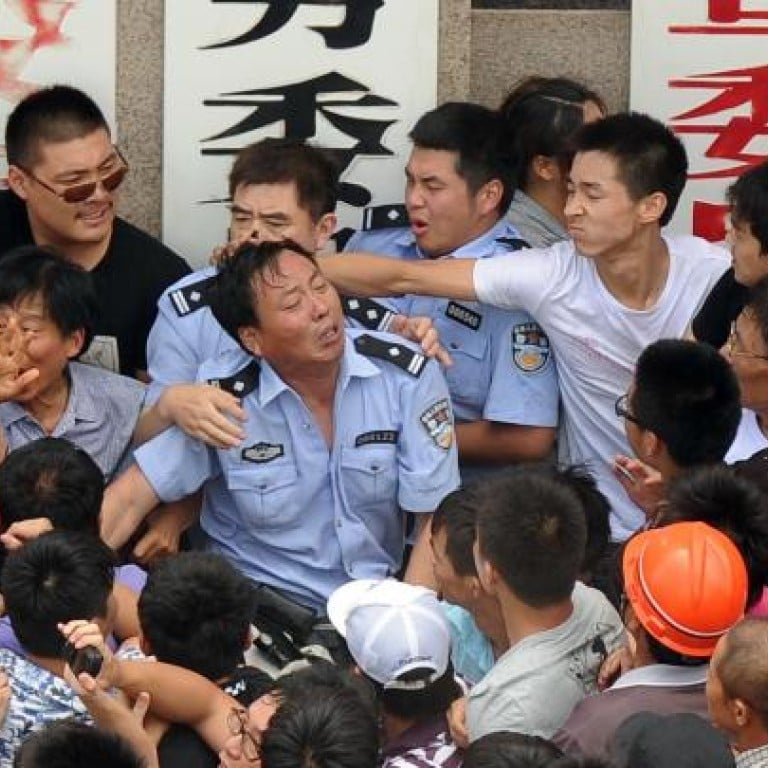
Protests indicate mainlanders want leaders to take pollution seriously
Growth has come ata price - and protests make it clear that the next leaders must address that legacy
As a new generation of leaders prepares to take the nation's reins later this year, they will inherit the unenviable task of dealing with its ever-worsening pollution.
Despite all the talk of "scientific development" - a catchphrase of the incumbent leadership - over the past year, top officials, including Hu Jintao and Wen Jiabao , have admitted that environmental degradation has gone from bad to worse.
Severe pollution has not only turned rivers black, blue skies hazy, and fertile farmland into barren wasteland, it has become a top threat to public health.
Even Hu and Wen have begun to realise the effects of pollution that American writer Rachel Carson warned about half a century ago in her book , and that those problems have come to fruition under their watch.
Their worst nightmare, arguably, is a by-product of that pollution's spread - the kind of environmental and social activism that has already resulted in social unrest across the mainland.
Residents in one city after another have begun to protest at the damage from pollution, or even simply from the fear of it, which not only poses a risk to social stability, but threatens the duo's political legacy.
The administration's failure to find a balance between economic expansion and limiting its toll on public health and the environment, as was promised, is illustrated by mass protests in Qidong and Shifang last month.
Thousands joined a three-day protest over the building of a heavy-metal processing plant early last month in Shifang, a small city ravaged by the Sichuan earthquake in 2008 and blighted by heavy industrial pollution.
Locals were angry that they had been kept in the dark about the 10 billion yuan (HK$12.24 billion) project until construction had begun.
Not surprisingly, the protest turned violent and bloody when local authorities tried to disperse people with riot police wielding batons and firing tear gas.
But the Shifang protesters refused to back down until authorities scrapped the plan.
That success clearly inspired people in Qidong, a county-level city in the affluent coastal province of Jiangsu , where a plan for a waste-water pipeline from a paper factory was met with public opposition. Despite a heavy security presence, thousands took to the streets, besieging government headquarters, over fears it would pollute a fishing port.
Perhaps mindful of violent protests seen elsewhere, local authorities made a compromise within hours, agreeing to abandon the plan.
State media even began to refer to the success of the protests as the "Shifang-Qidong Model", which they said would "present an unprecedented challenge to China's future development". But as the party mouthpiece pointed out, the real lesson was about authorities' failure to "establish an open and transparent decision-making mechanism, and build a tolerant environment for public discourse".
In an era of burgeoning environmental awareness and internet-based activism, we have seen many mass protests triggered by similar health and pollution concerns - concerns compounded by authorities' unwillingness to embrace greater openness.
People have spoken up again and again in places such as Shantou and Panyu in Guangdong, in Xiamen , Fujian , in Dalian , Liaoning , and in the rural village of Zhentou, Hunan .
And their stance is clear: they don't want pollution in their back garden, and they abhor the bloody-minded pursuit of higher gross domestic product.

